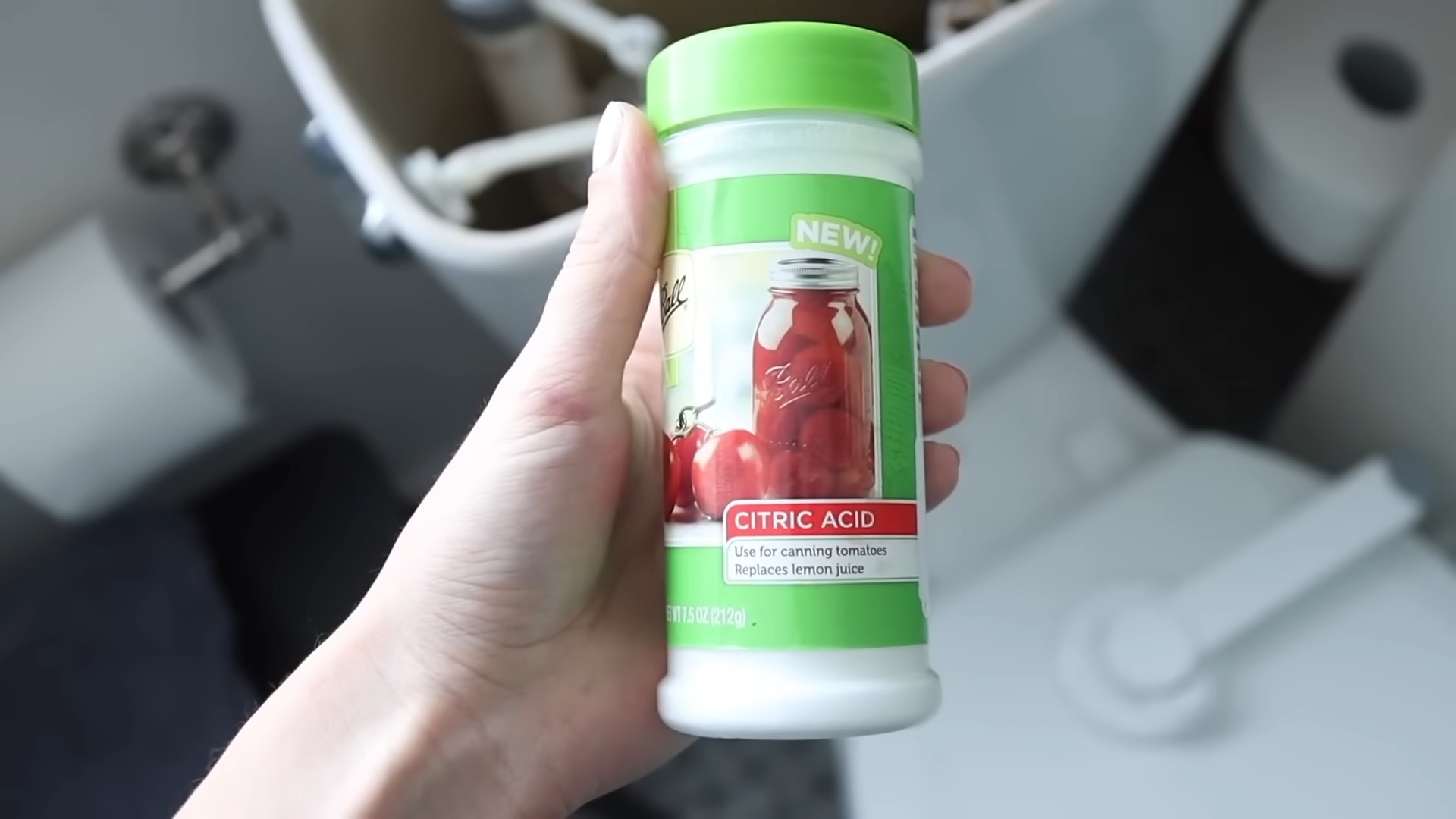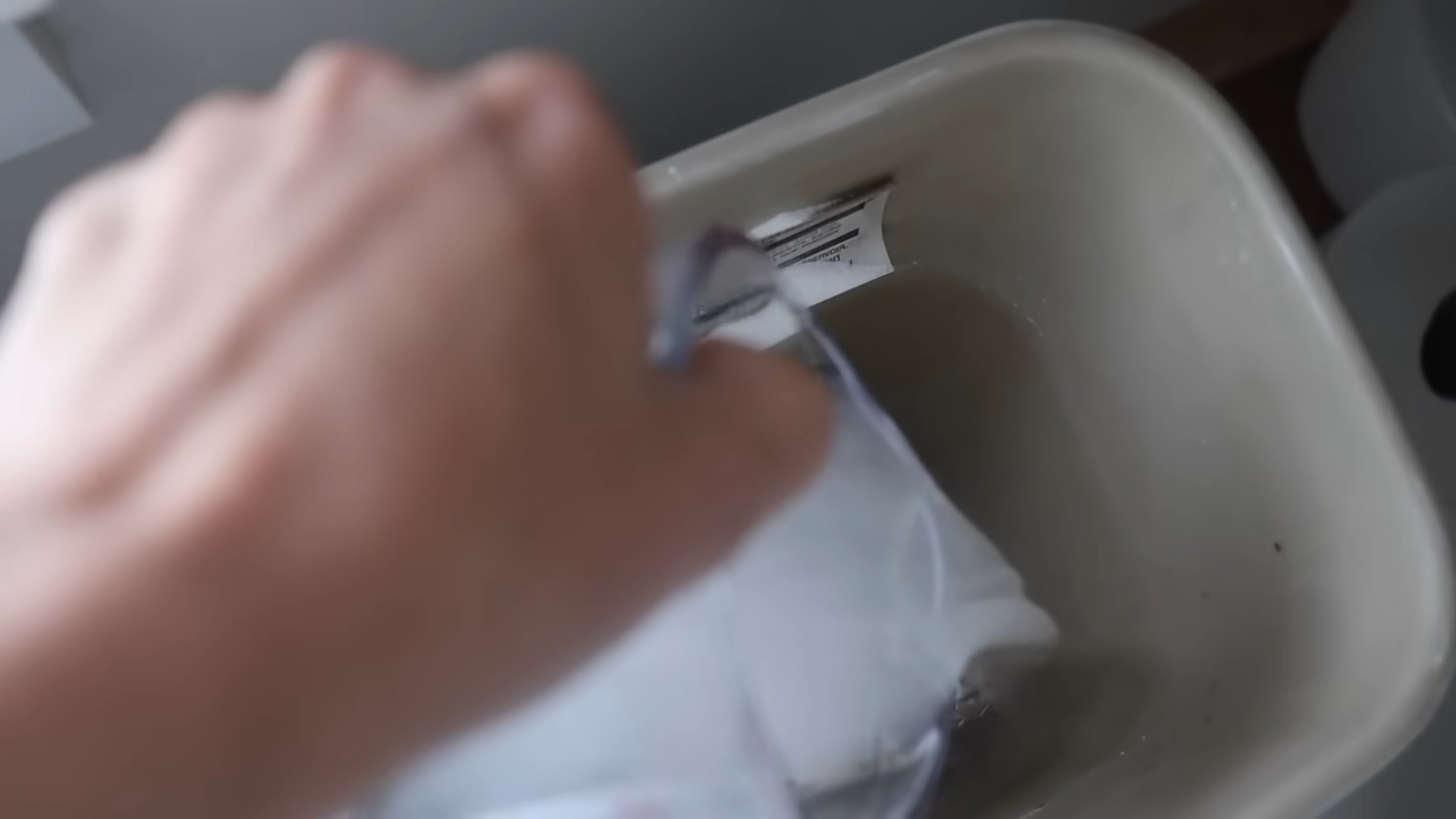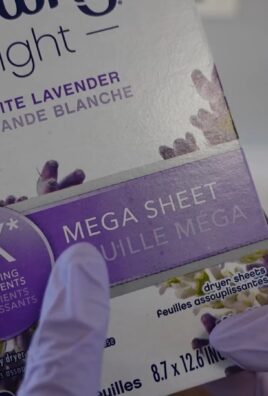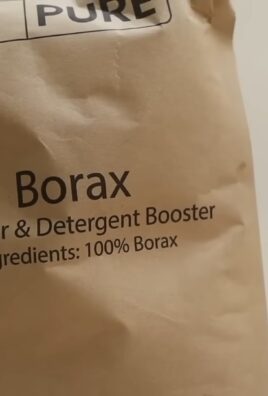Citric Acid Cleaning Hacks: Unlock the Sparkling Secrets to a Spotless Home!
Have you ever wondered how our grandmothers kept their homes so impeccably clean, often without the harsh chemicals we rely on today? The answer, my friends, might just lie in the humble lemon! For centuries, cultures around the globe have harnessed the natural cleaning power of citrus fruits. From ancient Roman bathhouses gleaming with lemon-infused water to Victorian-era housewives using lemon juice to brighten fabrics, the legacy of citrus cleaning is rich and enduring.
But why should you care about these time-tested traditions now? In today’s world, we’re all increasingly aware of the impact harsh chemicals have on our health and the environment. Plus, let’s be honest, who *really* enjoys spending hours scrubbing away stubborn stains? That’s where citric acid cleaning hacks come in!
I’m here to show you how to ditch the expensive, potentially harmful cleaning products and embrace the natural, effective, and budget-friendly power of citric acid. From banishing hard water stains in your bathroom to reviving your dingy coffee maker, these simple DIY tricks will transform your cleaning routine and leave your home sparkling. Get ready to discover the magic of citric acid cleaning hacks and create a healthier, happier home, one lemon-fresh step at a time!

Citric Acid Cleaning Hacks: Your All-Natural Cleaning Powerhouse!
Hey there, fellow DIY enthusiasts! I’m so excited to share my favorite cleaning secret weapon with you: citric acid! Forget harsh chemicals and expensive cleaners; this natural powder is a game-changer for tackling grime, limescale, and stubborn stains all around your house. It’s eco-friendly, budget-friendly, and surprisingly effective. Let’s dive into some amazing citric acid cleaning hacks!
What is Citric Acid and Why Use It?
Citric acid is a weak organic acid found naturally in citrus fruits like lemons and limes. It’s a fantastic cleaning agent because it’s a natural descaler, degreaser, and deodorizer. Plus, it’s biodegradable and much gentler on the environment than many commercial cleaners. I love that I can clean my home effectively without worrying about harsh fumes or harmful chemicals.
General Tips for Using Citric Acid
Before we get into the specific hacks, here are a few general tips to keep in mind:
* Always dilute citric acid: It’s potent stuff! Using it undiluted can damage some surfaces. I usually start with a 5-10% solution (1-2 tablespoons of citric acid per cup of water) and adjust as needed.
* Test on an inconspicuous area first: Just like with any cleaning product, it’s always a good idea to test your citric acid solution on a small, hidden area before applying it to the entire surface. This will help you ensure that it doesn’t cause any discoloration or damage.
* Use warm water: Warm water helps the citric acid dissolve more easily and enhances its cleaning power.
* Wear gloves: While citric acid is generally safe, it can irritate sensitive skin. I always wear gloves when working with it for extended periods.
* Avoid using on certain surfaces: Don’t use citric acid on marble, granite, or other natural stone surfaces, as it can etch them. Also, avoid using it on aluminum, as it can cause corrosion.
Hack 1: Descaling Your Kettle and Coffee Maker
Limescale buildup in kettles and coffee makers is a common problem, but citric acid makes it a breeze to fix.
Materials You’ll Need:
* 1-2 tablespoons of citric acid
* Water
* Kettle or coffee maker
Step-by-Step Instructions:
1. Prepare the solution: Fill your kettle or coffee maker with water, leaving some space at the top. Add 1-2 tablespoons of citric acid, depending on the severity of the limescale buildup. I usually start with 1 tablespoon and add more if needed.
2. Boil or run the solution: For kettles, boil the solution and let it sit for 30 minutes to an hour. For coffee makers, run the solution through a brewing cycle.
3. Rinse thoroughly: After soaking, discard the solution and rinse the kettle or coffee maker thoroughly with fresh water several times to remove any remaining citric acid. I usually rinse at least three times to be sure.
4. Repeat if necessary: If there’s still some limescale remaining, repeat the process.
Hack 2: Cleaning Your Shower Head
A clogged shower head can reduce water pressure and make showering less enjoyable. Citric acid can dissolve mineral deposits and restore your shower head to its former glory.
Materials You’ll Need:
* 1/4 cup of citric acid
* 1 cup of hot water
* Plastic bag
* Rubber band or twist tie
Step-by-Step Instructions:
1. Prepare the solution: In a plastic bag, mix 1/4 cup of citric acid with 1 cup of hot water. Stir until the citric acid is dissolved.
2. Submerge the shower head: Place the bag over the shower head, ensuring that the shower head is completely submerged in the solution. Secure the bag with a rubber band or twist tie.
3. Soak overnight: Let the shower head soak in the solution overnight. This will give the citric acid plenty of time to dissolve the mineral deposits.
4. Remove and rinse: The next morning, remove the bag and rinse the shower head thoroughly with water. Use a toothbrush or small brush to scrub away any remaining debris.
5. Reattach and test: Reattach the shower head and test the water flow. You should notice a significant improvement in water pressure.
Hack 3: Removing Hard Water Stains from Faucets and Sinks
Hard water stains can make your faucets and sinks look dull and dirty. Citric acid can effectively remove these stains and restore their shine.
Materials You’ll Need:
* 2 tablespoons of citric acid
* 1 cup of warm water
* Spray bottle
* Microfiber cloth
Step-by-Step Instructions:
1. Prepare the solution: In a spray bottle, mix 2 tablespoons of citric acid with 1 cup of warm water. Shake well to dissolve the citric acid.
2. Spray the affected area: Spray the citric acid solution onto the faucets and sinks, focusing on areas with hard water stains.
3. Let it sit: Allow the solution to sit for 10-15 minutes to loosen the stains.
4. Scrub and rinse: Use a microfiber cloth to scrub the affected areas. Rinse thoroughly with water.
5. Dry and polish: Dry the faucets and sinks with a clean microfiber cloth to prevent water spots.
Hack 4: Cleaning Your Dishwasher
Dishwashers can accumulate food particles, grease, and limescale over time, which can affect their performance. Citric acid can help clean and deodorize your dishwasher.
Materials You’ll Need:
* 2-3 tablespoons of citric acid
* Dishwasher-safe bowl
Step-by-Step Instructions:
1. Prepare the dishwasher: Make sure your dishwasher is empty.
2. Place citric acid in the bowl: Pour 2-3 tablespoons of citric acid into a dishwasher-safe bowl.
3. Place the bowl in the top rack: Place the bowl containing the citric acid on the top rack of the dishwasher.
4. Run a hot cycle: Run the dishwasher on a hot cycle without any detergent.
5. Repeat if necessary: If your dishwasher is particularly dirty, you may need to repeat the process.
Hack 5: Cleaning Burnt Food from Pots and Pans
Burnt food can be a nightmare to remove from pots and pans. Citric acid can help loosen the burnt residue and make it easier to clean.
Materials You’ll Need:
* 1-2 tablespoons of citric acid
* Water
* Pot or pan with burnt food
Step-by-Step Instructions:
1. Fill the pot or pan with water: Fill the pot or pan with enough water to cover the burnt food.
2. Add citric acid: Add 1-2 tablespoons of citric acid to the water.
3. Boil the solution: Bring the solution to a boil and let it simmer for 15-20 minutes.
4. Let it cool: Allow the solution to cool slightly before attempting to clean the pot or pan.
5. Scrub and rinse: Use a sponge or scrub brush to scrub away the burnt food. The citric acid should have loosened the residue, making it easier to remove. Rinse thoroughly with water.
Hack 6: Removing Soap Scum from Shower Doors and Tiles
Soap scum can be a stubborn problem in showers and bathrooms. Citric acid can effectively dissolve soap scum and leave your shower doors and tiles sparkling clean.
Materials You’ll Need:
* 2 tablespoons of citric acid
* 1 cup of warm water
* Spray bottle
* Microfiber cloth
Step-by-Step Instructions:
1. Prepare the solution: In a spray bottle, mix 2 tablespoons of citric acid with 1 cup of warm water. Shake well to dissolve the citric acid.
2. Spray the affected area: Spray the citric acid solution onto the shower doors and tiles, focusing on areas with soap scum.
3. Let it sit: Allow the solution to sit for 10-15 minutes to loosen the soap scum.
4. Scrub and rinse: Use a microfiber cloth or sponge to scrub the affected areas. Rinse thoroughly with water.
5. Dry and polish: Dry the shower doors and tiles with a clean microfiber cloth to prevent water spots.
Hack 7: Cleaning Toilet Bowls
Citric acid can help remove stains and mineral deposits from toilet bowls, leaving them clean and fresh.
Materials You’ll Need:
* 1/4 cup of citric acid
* Toilet brush
Step-by-Step Instructions:
1. Sprinkle citric acid in the bowl: Sprinkle 1/4 cup of citric acid directly into the

Conclusion
So, there you have it! Citric acid cleaning hacks are not just a trend; they’re a game-changer for anyone looking to simplify their cleaning routine, reduce their reliance on harsh chemicals, and achieve sparkling results. From tackling stubborn hard water stains in your bathroom to reviving your dingy coffee maker, the versatility of citric acid is truly remarkable.
Why is this a must-try? Because it’s effective, eco-friendly, and economical. You’re not just cleaning; you’re investing in a healthier home and a more sustainable lifestyle. The gentle yet powerful nature of citric acid means you can clean with confidence, knowing you’re not exposing yourself or your family to harmful fumes or residues. Plus, a little citric acid goes a long way, making it a budget-friendly alternative to many commercial cleaners.
Looking for variations? Absolutely! For a more potent cleaning solution, try combining citric acid with baking soda for a fizzing action that helps lift grime and dirt. Add a few drops of your favorite essential oil, like lemon or lavender, for a fresh, natural scent. You can also create a citric acid paste by mixing it with a small amount of water to tackle particularly stubborn stains on grout or tiles. Experiment with different concentrations to find what works best for your specific needs. Remember to always test a small, inconspicuous area first, especially on delicate surfaces.
We’ve covered a range of applications, but the possibilities are truly endless. Think about using citric acid to clean your dishwasher, remove soap scum from shower doors, or even brighten your laundry. The key is to understand the power of this natural acid and adapt it to your unique cleaning challenges.
Don’t just take our word for it – we wholeheartedly encourage you to try these citric acid cleaning hacks for yourself. We’re confident that you’ll be amazed by the results. Once you’ve experienced the cleaning power of citric acid, you’ll wonder how you ever lived without it.
We’re eager to hear about your experiences! Share your before-and-after photos, your favorite citric acid cleaning recipes, and any tips or tricks you’ve discovered along the way. Let’s build a community of eco-conscious cleaners who are passionate about creating healthier, happier homes. Your feedback will not only help others discover the benefits of citric acid but also inspire us to continue exploring new and innovative ways to use this incredible natural cleaner. So, go ahead, give it a try, and let us know what you think! We can’t wait to see your sparkling results!
Frequently Asked Questions (FAQ)
What exactly is citric acid, and is it safe to use?
Citric acid is a naturally occurring organic acid found in citrus fruits like lemons, limes, and oranges. It’s a weak acid, which makes it effective for cleaning without being overly harsh. When used as directed, citric acid is generally considered safe for cleaning around the home. It’s biodegradable and doesn’t release harmful fumes like many commercial cleaners. However, it’s always a good idea to wear gloves when handling citric acid, especially in concentrated form, as it can be irritating to the skin. Avoid contact with eyes, and if contact occurs, rinse thoroughly with water. Keep citric acid out of reach of children and pets.
Can I use lemon juice instead of citric acid powder?
While lemon juice contains citric acid, it’s not as concentrated as citric acid powder. You can use lemon juice as a substitute, but you’ll likely need to use a larger quantity to achieve the same cleaning results. Also, lemon juice contains sugars that can leave a sticky residue, so you may need to rinse more thoroughly after cleaning. Citric acid powder is a more pure and potent form, making it a more efficient and effective cleaning agent. For best results, we recommend using citric acid powder.
What surfaces should I avoid cleaning with citric acid?
While citric acid is generally safe for most surfaces, there are a few exceptions. Avoid using it on natural stone surfaces like marble, granite, and limestone, as it can etch or damage them. It’s also best to avoid using citric acid on aluminum, as it can cause corrosion. Always test a small, inconspicuous area first before cleaning an entire surface, especially if you’re unsure about its compatibility with citric acid. If you’re cleaning metal, be sure to rinse thoroughly and dry the surface to prevent any potential corrosion.
How do I make a basic citric acid cleaning solution?
Making a basic citric acid cleaning solution is simple. Start by dissolving 1-2 tablespoons of citric acid powder in 1 cup of warm water. Stir until the powder is completely dissolved. You can then pour the solution into a spray bottle for easy application. Adjust the concentration of citric acid depending on the severity of the cleaning task. For tougher stains, you can use a more concentrated solution. For lighter cleaning, you can use a less concentrated solution. Remember to label your spray bottle clearly to avoid any confusion.
How do I clean my coffee maker with citric acid?
Cleaning your coffee maker with citric acid is a great way to remove mineral buildup and improve its performance. To do this, dissolve 1-2 tablespoons of citric acid powder in a full pot of water. Pour the solution into the coffee maker’s water reservoir and run a full brewing cycle without coffee grounds. After the cycle is complete, run two or three cycles with fresh water to rinse away any remaining citric acid. This will leave your coffee maker clean and ready to brew delicious coffee.
Can I use citric acid to clean my dishwasher?
Yes, citric acid is an excellent way to clean your dishwasher and remove hard water stains and soap scum. To clean your dishwasher, add 2-3 tablespoons of citric acid powder to the dishwasher’s detergent dispenser. Run a normal wash cycle without any dishes. For an extra boost, you can also sprinkle some citric acid on the bottom of the dishwasher before running the cycle. This will help to remove any lingering odors and leave your dishwasher sparkling clean.
How do I remove hard water stains from my bathroom with citric acid?
Citric acid is a powerful weapon against hard water stains in the bathroom. To remove hard water stains from shower doors, faucets, and tiles, mix 2 tablespoons of citric acid powder with 1 cup of warm water. Spray the solution onto the affected areas and let it sit for 10-15 minutes. Then, scrub with a sponge or brush and rinse thoroughly with water. For stubborn stains, you may need to repeat the process or use a more concentrated solution. You can also create a paste by mixing citric acid with a small amount of water and applying it directly to the stains.
Is citric acid safe for septic systems?
Yes, citric acid is generally considered safe for septic systems. It’s a biodegradable substance that breaks down quickly and doesn’t harm the beneficial bacteria in your septic tank. Unlike harsh chemicals like bleach, citric acid won’t disrupt the balance of your septic system. However, it’s always a good idea to use citric acid in moderation and avoid pouring large quantities down the drain at once.
Where can I buy citric acid powder?
Citric acid powder is readily available at most grocery stores, health food stores, and online retailers. Look for it in the baking aisle or the cleaning supplies section. You can also find it at stores that sell canning supplies. When purchasing citric acid, make sure to choose a food-grade product if you plan to use it for cleaning food-related items like coffee makers or dishwashers.
How should I store citric acid powder?
Store citric acid powder in a cool, dry place in an airtight container. This will help to prevent it from clumping or absorbing moisture. Keep it away from direct sunlight and heat. Properly stored citric acid powder can last for several years. Make sure to label the container clearly to avoid any confusion.



Leave a Comment